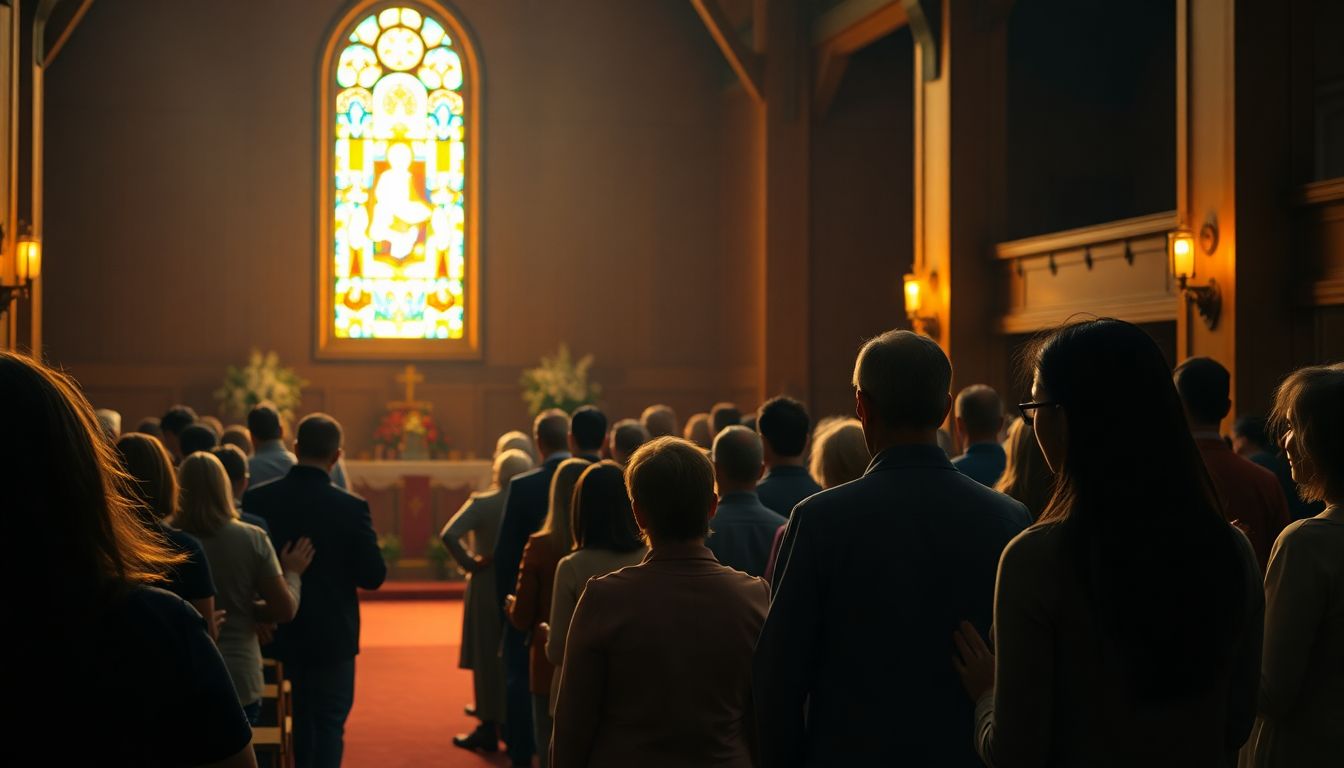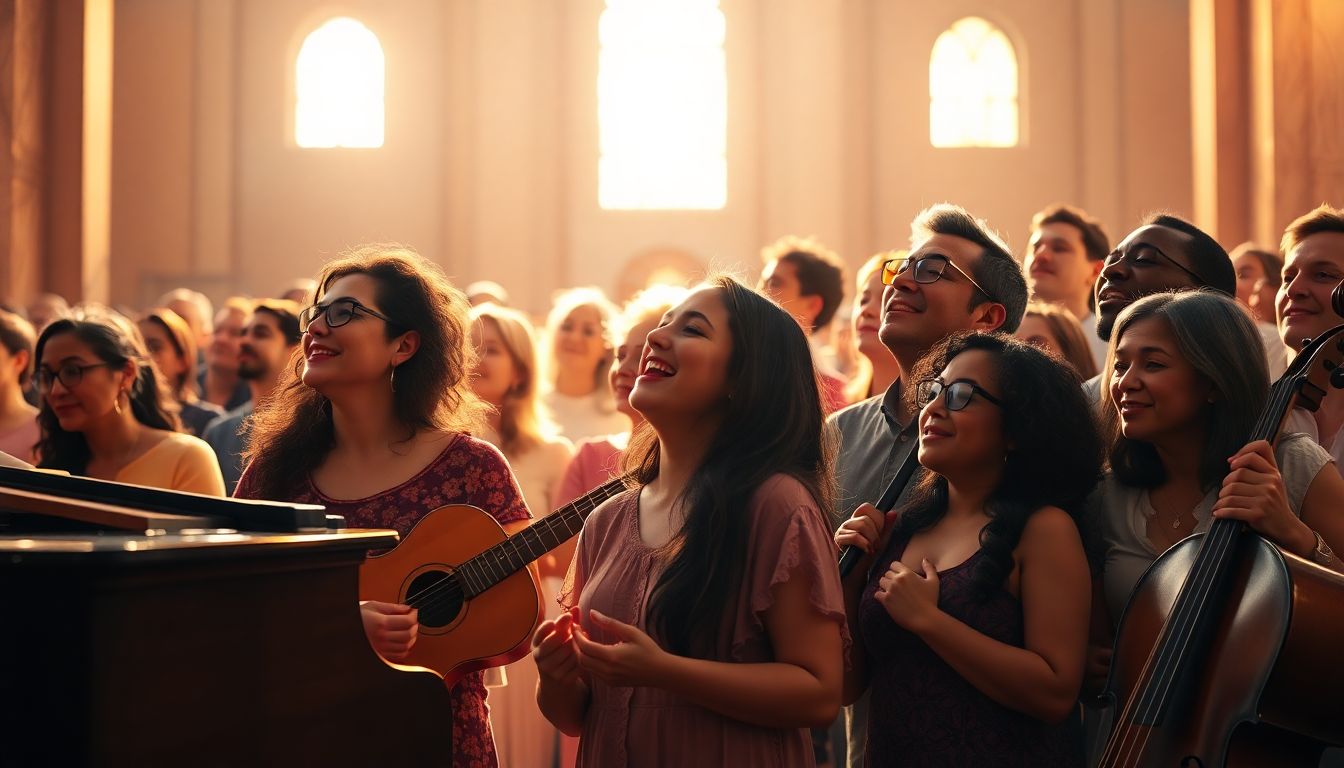Elevate Your Worship: The Transformative Power of Music

The connection between music and spirituality is profound. Music has a unique ability to touch the heart and soul, making it an essential part of worship. Imagine entering a church filled with melodies that uplift your spirit. The emotional impact of music in religious settings enhances spiritual practices, allowing every worshiper to connect more deeply with their faith.
Music is a universal language that transcends cultural barriers and resonates with people from all walks of life. Studies show that nearly 80% of worshipers feel more engaged when music is part of their experience. This statistic highlights music’s significant role in worship, encouraging everyone to explore how melodies can deepen their spiritual journey.
The Historical Significance of Music in Worship
Music has played a vital role in worship across many cultures and time periods. In ancient traditions, music served as a key component in religious rituals. For example:
- Ancient Egyptians used hymns to honor their gods.
- Jewish people have a long history of chanting Psalms during temple ceremonies.
- Early Christians incorporated hymns into their gatherings to express faith and devotion.
As time progressed, musical styles and instruments evolved within different faiths. From Gregorian chants in Catholicism to gospel music in African American churches, these variations reflect the rich tapestry of worship practices.
Historical events have also influenced liturgical music. The Reformation brought about a shift in church music, encouraging congregational singing and the use of vernacular languages. These changes made worship more accessible and engaging for everyone.
Music’s Psychological Impact on Worship
The psychological effects of music can greatly influence worship experiences. Research indicates that music can alter mood, evoke strong emotions, and even strengthen spiritual connections. Studies in neuroscience reveal that listening to music activates areas of the brain involved in pleasure and emotion, proving that music enhances the worship experience.
Additionally, music fosters feelings of community and unity among worshipers. Collective singing, for instance, helps create a sense of belonging. When people sing together, they bond over shared beliefs, elevating the communal spirit.
The Power of Music in Enhancing Prayer and Meditation
Music can serve as a valuable tool for centering and focusing the mind during prayer. The right tunes can create an atmosphere conducive to contemplation and reflection. Certain styles like soft instrumental music, chants, or hymns can promote a meditative state that enriches spiritual practices.
To choose the best music for personal prayer, consider:
- Personal Preference: Select styles that resonate with you.
- Purpose: Decide if you want to calm your mind or inspire praise.
- Instruments: Engage with sounds that uplift or soothe, such as piano, guitar, or nature sounds.
Choosing the Right Music for Your Worship Experience
Choosing the right music enhances the worship experience significantly. Different musical styles can elicit various emotional responses. For example:
- Traditional Hymns: Deepen reverence and reflection.
- Praise and Worship Songs: Inspire joy and celebration.
- Contemporary Christian Music: Connect through modern sounds.
When selecting music for services, consider the type of gathering. A solemn service may call for slower, more thoughtful music, while a celebration might benefit from upbeat tunes. It’s also essential to incorporate diverse musical traditions to ensure that all members feel included.
The Future of Music in Worship
As technology advances, new trends in worship music emerge. Musicians and songwriters play a crucial role in shaping the modern worship experience. Streaming services and digital platforms make it easier than ever to access a diverse range of worship music.
Encouraging creativity and innovation in worship music can lead to fresh expressions of faith. This evolution keeps worship exciting and relevant for newer generations while honoring age-old traditions.
Conclusion: Unlocking the Spiritual Potential of Music in Worship
Music is multifaceted and plays a significant role in enhancing the worship experience. From its historical roots to its psychological impacts, music transforms how we connect with our faith.
Explore the power of music in your own spiritual journey. Find melodies that resonate with you, and don’t hesitate to share them with your community. By embracing music in worship, we unlock its enduring power to inspire, heal, and unite us in faith.










